Technical Committee
Technical Committee is presently composed of the three Principal Investigators (PIs) and other strategically appointed members who work closely with the secretariat and offer technical advice.
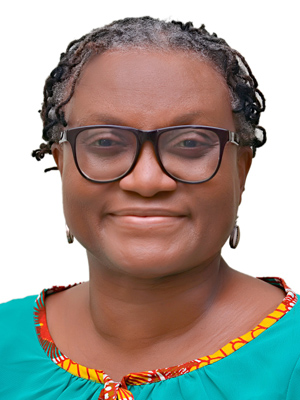
Dzodzi Tsikata is a Distinguished Research Professor of Development Studies at SOAS, University of London and an Adjunct Professor at the Institute of African Studies (IAS) at the University of Ghana. She is the immediate past Director of the IAS (2016-2022), and was a Research Professor of Development Sociology at the Institute of Statistical, Social and Economic Research (ISSER) at the University of Ghana. Her research for the last 30 years has been in the areas of gender and development policies and practices, agrarian change and rural livelihoods, the labour relations of the informal economy, and social policy. Her recent publications include, with Dzifa Torvikey, “COVID-19 and Africa: A Synthesis of 12 Country Studies”, published by the INCLUDE Knowledge Platform (2021) and with Joanna Bourke Martignoni, Christophe Gironde, Christophe Golay and Elisabeth Prügl, an edited book, “Agricultural Commercialization, Gender Equality and the Right to Food: Insights from Ghana and Cambodia”, Routledge, Taylor, and Francis (2023). She was the first coordinator of the Ghana Social Development Outlook, a biennial publication of the Institute of Statistical, Social and Economic Research (ISSER), University of Ghana.
Dzodzi is a leading member of several independent global South capacity building, research, and policy advocacy networks, including the International Development Economics Associates (IDEAS), the Agrarian South Network, Third World Network Africa, and the Network for Women’s Rights in Ghana. She is the Managing Editor of the pan-African journal, Feminist Africa and a member of the editorial collective of Agrarian South: Journal of Political Economy. She is currently a board member of the United Nations Research Institute for Social Development (UNRISD), the Development Network DAWN, and Africa Journals Online (AJOL) and the Centre for Democracy and Development in Abuja. She is a fellow of the Ghana Academy of Arts and Sciences. dzodzit@yahoo.co.uk
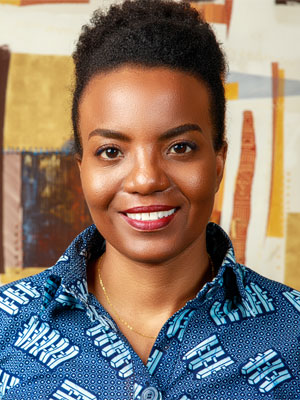
Professor Nana Akua Anyidoho is the Director of the Centre for Social Policy Studies, and Associate Professor, Institute of Statistical, Social and Economic Research (ISSER), both of the University of Ghana. Her background is primarily in developmental psychology and social policy, with additional training in statistics, economics and African Studies, and in both qualitative and quantitative methodologies. She is especially interested in how young people and women, as marginalized social groups, respond to globalized and neoliberalizing policy structures in their struggles for social and economic rights.
She serves on the Executive Committee of the Council for the Development of Social Research in Africa (CODESRIA), the Board of Directors of the African Studies Association (ASA), and the Advisory Board of the SSRC's Next Generation Social Sciences in Africa program. She is the immediate past President of the Ghana Studies Association (GSA). Anyidoho has a BA in Psychology (1997) from the University of Ghana and a PhD in Human Development and Social Policy (2005) from Northwestern University.
anyidoho@ug.edu.gh. See more details of her projects and publications at www.anyidoho.me
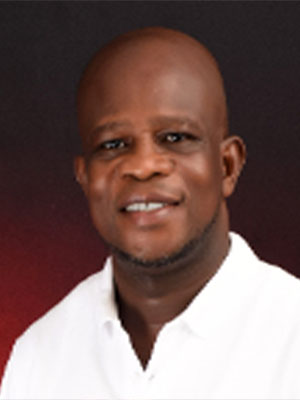
Prof. Michael Kpessa-Whyte earned a Ph.D. and M.A. from McMaster University and Brock University in Ontario, Canada, and a B.A. from the University of Ghana, Legon. His educational pedigree is a testament to his intellectual prowess and his dedication to the pursuit of knowledge. Prof. Kpessa-Whyte joined the Institute of African Studies, University of Ghana, and quickly made his mark, earning the prestigious accolade of "Promising Researcher" a year later in an award by the School of Social Sciences of the same university. His research interests span an impressive breadth, from institutional theory and public policy analysis to comparative politics, social policy, and the intricate dynamics of governance and nation-building in Sub-Saharan Africa.
Prof. Kpessa-Whyte's academic journey is further distinguished by the accolades he has received, including the highly competitive Postdoctoral Research Fellowship from the Social Sciences and Humanities Research Council (SSHRC) of Canada, as well as the Postdoctoral Fellowship in Social Policy from the Johnson-Shoyama Graduate School of Public Policy at the University of Saskatchewan. Currently, Prof. Kpessa-Whyte serves as the Director-General of the State Interest and Governance Authority (SIGA), where he plays a crucial role in overseeing the governance of state-owned enterprises in Ghana. His leadership in this position reflects his commitment to enhancing transparency and efficiency in public sector management. In addition to his role at SIGA, Prof. Kpessa-Whyte is a co-principal investigator in the Open Society-funded research project on Gender Equitable Transformative Social Policy in Africa (GETSPA). This ambitious initiative spans over 30 countries across the continent, aiming to promote gender equity and social justice through innovative policy frameworks
It is obvious that Prof. Kpessa-Whyte's impact extends far beyond the confines of academia. Between 2013 and 2017, he served as a Policy Advisor at the Office of the President of Ghana, while also holding the role of Acting Executive Director of the Ghana National Service Scheme – a testament to his multifaceted expertise and unwavering commitment to shaping policy. The depth and quality of Prof. Kpessa-Whyte's scholarly work are truly remarkable. His peer-reviewed articles have been published in an array of prestigious journals, including Policy Studies, the Canadian Journal of African Studies, Gerontologist, and the Review of International Political Economy, among others. These publications showcase his keen analytical mind and his ability to tackle complex, real-world challenges with precision and insight.
As a dynamic and versatile scholar, Prof. Michael Kpessa-Whyte continues to push the boundaries of his field, making a profound impact on the understanding of political dynamics, policy formulation, and social transformation in Ghana and beyond. His remarkable career trajectory and unwavering commitment to excellence make him a true inspiration to all who seek to make a positive difference in the world. Prof. Kpessa-Whyte is an active member of several professional organizations and has served as a reviewer for various academic journals. His expertise is further recognized through his membership on the editorial boards of renowned academic journals. A dedicated mentor, he has guided many students in their academic journeys and has presented papers at several international conferences, where he shares his insights as an activist scholar and public intellectual. He can be reached on mkpessa-whyte@ug.edu.gh.com; michael.kpessa@gmail.com

Abena Oduro is an Associate Professor in the Department of Economics at the University of Ghana, Legon. Her current research is in the areas of poverty, inequality and vulnerability analysis, gender-responsive budgeting, intrahousehold distribution of time, and African regional integration. She is an associate editor of Feminist Economics and is one of the co-editors of the journal’s special issue on Engendering Economic Policy in Africa published in 2015.
She is a member of the International Association for Feminist Economics and the Pan African Social Research Council.
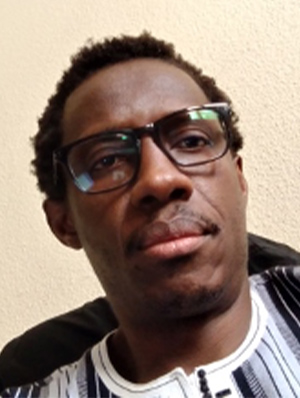
Ato Kwamena Onoma is an associate professor of Political Science at the University of Toronto- St. George. He has worked on property rights institutions and anti-refugee violence in the past. His current work explores mobility, identity, belonging and inter-communal relations through the prisms of epidemic and the geographies of interment spaces. He is the author of The Politics of Property Rights Institutions in Africa (2009) and Anti-Refugee Violence and African Politics (2013).
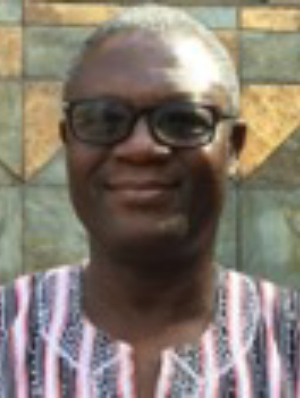
Charles Abugre is a Development Economist. Currently, he is the Executive Director of the International Development Economics Associates (IDEAs) - a global network of heterodox economists/political economists. He was previously CEO of the Savannah Accelerated Development Authority (SADA), Commissioner at the National Development Planning Commission (NDPC), Regional Director of the United Nations Millennium Campaign at UNDP, Head of Advocacy and Global Policy at Christian Aid UK, and Researcher at Swansea University (Swansea University), among others. He is associated with the founding of several non-governmental organizations in Ghana and elsewhere. His research focuses on economic inequalities, development financing, and development management.
Ruth Castel-Branco is a Senior Lecturer at the University of the Witwatersrand and coordinator of the Future of Work(ers) Research Group at the Southern Centre for Inequality Studies in South Africa. Her research is focused on the casualization of labour, worker organizing and the redistributive role of the state. She holds a PhD in Sociology from the University of Witwatersrand.
Amy Niang is Senior Programme Officer and Head of the Research Programme. She is specialised in African Political History and Political Thought. Her work also examines Africa’s International relations and the geopolitics of security in the Sahel. Amy is the author of The Postcolonial African State in Transition: Stateness and Modes of Sovereignty (2018); co- editor of Identités sahéliennes en temps de crise: histoires, enjeux et perspectives (with Baz Lecocq, 2019) and Researching Peacebuilding in Africa: Reflections on Theory, Fieldwork and Context (with Ismail Rashid, 2020). Her work has also been published in many journals and edited collections and she serves on a range of editorial boards. Prior to assuming her current position, she taught at the University of the Witwatersrand in Johannesburg, the Mohammed VI Polytechnic University in Rabat, and has also held visiting positions and fellowships at various universities in Latin America, Africa, Europe, and North America. Niang is Associate Professor of Political Science currently on leave from the Africa Institute of Sharjah.
Marie Fall holds a Master’s Degree in Geography, a Postgraduate Diploma (University of Dakar) and a Doctorate (Ph.D.) in Geography (University of Montreal. After completing her PhD in geography, she pursued a post-doctoral fellowship at the International Development Research Centre in Ottawa (Canada). She then worked at the Regional Office for West and Central Africa in Dakar, where she was responsible for administrating and implementing the Rural Poverty and Environment Programme. This experience enabled her to develop expertise in international development, with a special emphasis on international cooperation, solidarity and development assistance. Since August 2007, Marie Fall has been a lecturer and researcher at the Université du Québec à Chicoutimi (Canada), where she lectures in the Geography and Sustainable Development, International Cooperation, Regional Studies and Interventions, Regional and Territorial Development, Applied Humanities, Eco-Counselling, Governance, Self-Determination and Development. Her research and work focused on issues and challenges of international development; the recognition and enhancement of traditional knowledge in international projects; participatory governance of territorial resources; the vulnerability, adaptation and resilience of island and coastal communities to climate change; and agriculture, agroecology and sustainable food systems. Intersectional, decolonial and collaborative approaches and gender-inclusive development are cross-cutting themes in her research and work. She is responsible for the international cooperation internship in Senegal, which enables her students to work on various village initiatives on the Saloum Islands.
Marie Fall has expertise in multi-sector partnerships and in drawing up local development plans that are adapted to the socio-cultural, environmental and economic contexts of rural West Africa. She has been head of Canadian projects and responsible for the research component of international development projects in Senegal and Côte d'Ivoire. She was co-leader of the Mali, Mauritania and Senegal teams in Phase 1 of the GETSPA project.
Her contribution to community services is reflected in her involvement in solidarity, humanitarian, humanist and inclusive organisations and her commitment to various regional and national institutions dealing with education, sustainable health, culture, community life, solidarity and cooperation.
Dr. Hind Hourmat Allah is a lecturer at Cadi Ayyad University in Marrakech. She holds a PhD and an Authorisation to Supervise Research (HDR) in Economics and Management. She is a member of the LIRE-MD laboratory (Interdisciplinary Laboratory for Research and Studies in Organisation Management and Company Law). Her research focuses on the economics of fisheries resources, gender issues, climate governance, and family entrepreneurship. A significant part of her research is centred on African and Arab economies.
She has authored or co-authored numerous papers published in national and international journals and has also contributed to some national and international research projects over the last ten years. She recently co-published a paper in Africa Development (2021) on ‘The Use of Social Science Research by Environmental NGOs in Africa’.
